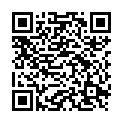|
|
|
| Module code: E905 |
|
|
3V+1U (4 hours per week) |
|
3 |
| Semester: 9 |
| Mandatory course: yes |
Language of instruction:
German |
Assessment:
Written exam
[updated 12.03.2010]
|
E905 (P211-0266, P211-0267) Electrical Engineering, Master, ASPO 01.10.2005
, semester 9, mandatory course
|
60 class hours (= 45 clock hours) over a 15-week period.
The total student study time is 90 hours (equivalent to 3 ECTS credits).
There are therefore 45 hours available for class preparation and follow-up work and exam preparation.
|
Recommended prerequisites (modules):
None.
|
Recommended as prerequisite for:
|
Module coordinator:
Prof. Dr.-Ing. Dietmar Brück |
Lecturer:
Prof. Dr.-Ing. Dietmar Brück
[updated 12.03.2010]
|
Learning outcomes:
This module on fuzzy control aims to teach the theory and practical application of newer methods in control engineering. The interaction of hardware and software components is explained in detail and demonstrated using practical examples. Students will be able to apply the methods acquired in this module to problems in control engineering and will appreciate the differences to conventional process control techniques. They will also learn the criteria for assessing when and where to use fuzzy control concepts and when and where to apply conventional control methods.
[updated 12.03.2010]
|
Module content:
1.Introduction
2.Fuzzy control
3.Case studies
4.Nonlinear analysis
5.Fuzzy identification and estimation
6.Adaptive fuzzy control
[updated 12.03.2010]
|
Teaching methods/Media:
Overhead transparencies, lecture notes, video projector
[updated 12.03.2010]
|
Recommended or required reading:
At the beginning of the course, students will be issued with a CD containing all the teaching material used in this module. The CD also contains a complete and regularly updated list of recommended reading materials. As the teaching materials are partly in German and partly in English, international students with a good command of English should be able to follow the lectures without difficulty.
Additional references:
S. Abe and M.-S. Lan. Fuzzy rules extraction directly from numerical data for function approximation. IEEE Trans. on Systems, Man, and Cybernetics, 25(1):119–129, January 1995
J.S. Albus. Outline for a theory of intelligence. IEEE Trans. on Systems, Man, and Cybernetics, 21(3):473–509, May/Jun. 1991
B.D.O. Anderson and J.B. Moore. Optimal Control: Linear Quadratic Methods. Prentice-Hall, Englewood Cliffs, NJ, 1990
A. Angsana and K.M. Passino. Distributed fuzzy control of flexible manufacturing systems. IEEE Trans. on Control Systems Technology, 2(4):423–435, December 1994
P.J. Antsaklis and K. M. Passino. Towards intelligent autonomous control systems: Architecture and fundamental issues. Journal of Intelligent and Robotic Systems, 1:315–342, 1989
P.J. Antsaklis and K. M. Passino, editors. An Introduction to Intelligent and Autonomous Control. Kluwer Academic Publishers, Norwell, MA, 1993
. Aracil, A. Ollero, and A. Garcia-Cerezo. Stability indices for the global analysis of expert control systems. IEEE Trans. on Systems, Man, and Cybernetics, 19(5):998–1007, Sep./Oct. 1989
K.J. Åström, J.J. Anton, and K.E. Arzen. Expert control. Automatica, 22(3):277–286, March 1986
K.J. Åström and T. Hägglund, editors. PID Control: Theory, Design, and Tuning. Instrument Society of America Press, Research Triangle Park, NC, second edition, 1995
[updated 12.03.2010]
|


